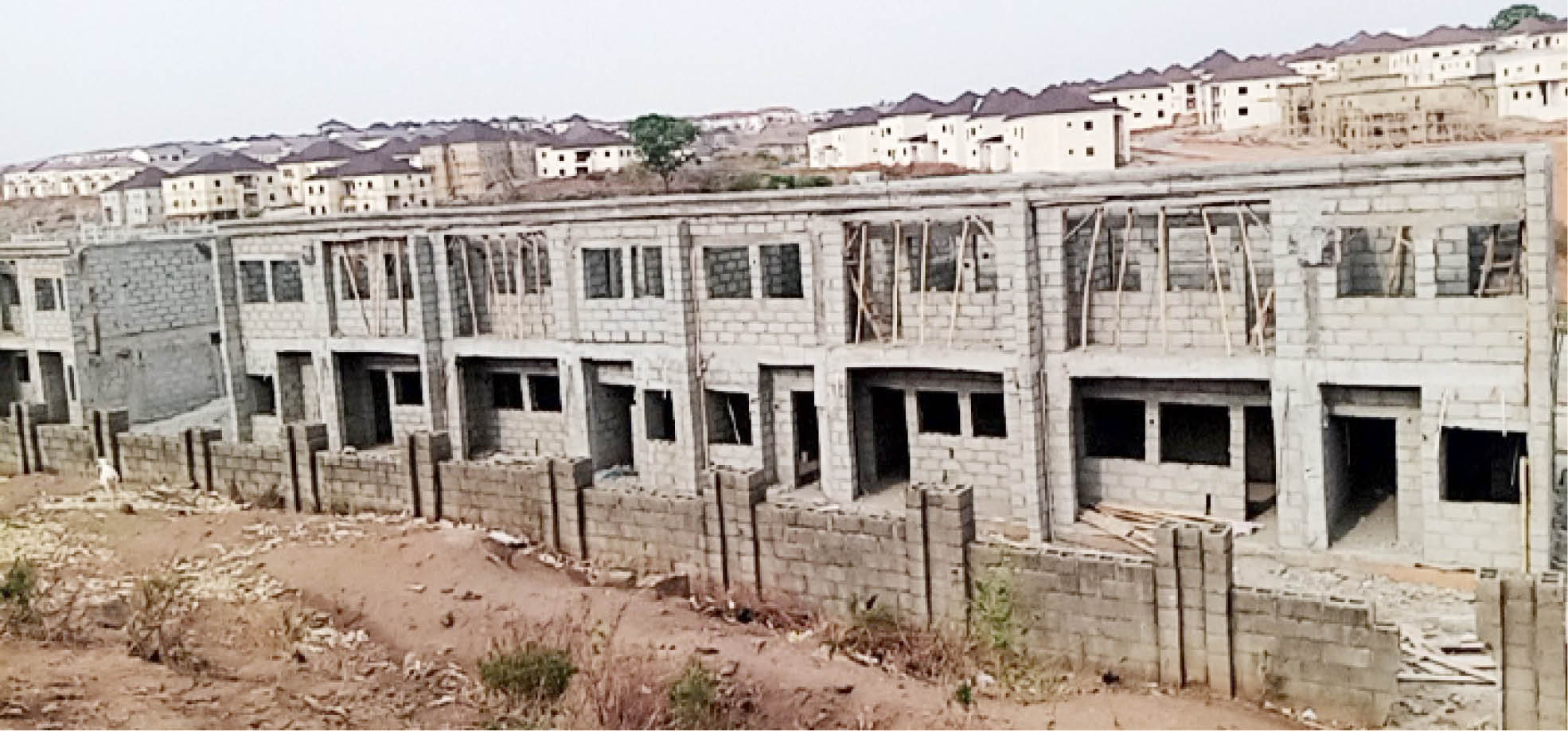Hyperinflation weakening real estate investment
The current economic realities in Nigeria, especially the hyperinflationary trends, have affected investment in real estate as investors are now more attracted to fixed income securities, Group Managing Director, Meristem Securities Limited, Oluwole Abegunde, has observed. He was a guest speaker at a business forum organised by Ubosi Eleh + Co with the theme, ‘Current […]

File photo of an estate under construction in Abuja
The current economic realities in Nigeria, especially the hyperinflationary trends, have affected investment in real estate as investors are now more attracted to fixed income securities, Group Managing Director, Meristem Securities Limited, Oluwole Abegunde, has observed.
He was a guest speaker at a business forum organised by Ubosi Eleh + Co with the theme, ‘Current Economic Realities and its Impact on the Nigerian Real Estate Market’.
Abegunde stated that the hyperinflationary environment, high exchange rate, and volatile exchange rate, which have seen the naira trading for N1,300 to one US dollar, have combined to increase caution on discretionary spending such as real estate.
He said, “Building materials inflation is on the upsurge and it is positive for merchants, but negative for real estate project return on investment (ROI). Naira depreciation is leading to higher construction costs via more expensive imported components.”
He pointed out, however, that trade GDP and e-commerce growth should trigger increased demand for warehouses, adding that there has been moderate growth in retail (malls, fitness centres, entertainment centres), health awareness and hedonistic lifestyle which are offset by lower income.
Abegunde noted further that real estate is also impacted by the rising cost of operation which has triggered a hybrid work culture, making the vacancy rate in commercial real estate persist.
He added that mixed impacts of migration, weak consumer spending power, and favourable mortgage policies/regulations have left residential real estate performance on the sidelines just as the hospitality sector remains depressed due to rising construction costs and increased operating expenses.
“In the midst of all these, however, pockets of opportunities still exist in real estate in the areas of land banking, trade-related real estate projects, real estate investment trusts (REITS) and house flipping among others,” Abegunde said, assuring that residential real estate in locations that afford greater flexibility in rent review can also prove attractive.
Principal Partner at Ubosi Eleh + Co, Emeka Eleh, highlighted the purpose of the forum which, according to him, is to inform, educate, provide a platform for sharing ideas, getting feedback, interacting with shareholders, and also as part of their corporate social responsibility (CSR).
